-
Intelligence agencies could use Internet-of-things to spy on people

James Clapper, the director of U.S. national intelligence, told lawmakers the other day that the Internet of things — baby monitors, TV set, home security devices, voice recognition dolls – may be used by intelligence services to spy on people. Clapper, testifying yesterday before a Senate panel, said that intelligence agencies might be able to use this new generation of household devices to increase their surveillance capabilities.
-
-
Chechen special forces on the ground in Syria, infiltrated ISIS ranks: Chechen leader

Chechen leader Ramzan Kadyrov said that Chechen Special Forces loyal to Vladimir Putin are on the ground in Syria, operating in ISIS-controlled territory. He claimed that the operation is part of a Russian-led intelligence-gathering mission. The Kremlin refused to confirm or deny Kadyrov’s claims, but the fact that Kadyrov, a self-described “foot soldier for Putin,” made them offers evidence of disagreements in Russia over the Syria strategy and suggests Kadyrov is seeking a greater role for Chechnya in regional affairs.
-
-
Nearly 300,000 UAV owners register with the FAA
Nearly 300,000 owners have registered their small unmanned aircraft in the first thirty days after the Federal Aviation Administration’s (FAA) online registration system went live. Owners who registered in the first month received a refund for the $5 application fee.
-
-
Ending civilian use of highly enriched, weapon-grade uranium
Efforts to convert civilian research reactors from weapon-grade highly enriched uranium (HEU) to low enriched uranium (LEU) fuels are taking significantly longer than anticipated, says a report from the National Academies of Sciences. The report calls for the federal government to take immediate steps to convert civilian research reactors currently using weapon-grade HEU fuel to a lower-enriched HEU fuel while awaiting the qualification of new LEU fuel.
-
-
Assad regime has committed crimes against humanity, war crimes, acts of “extermination”: UN
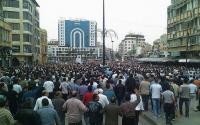
In a report issued earlier today (Monday), the UN Human Rights Council has accused the regime of President Bashar al-Assad of actions which amount to “extermination.” “The government has committed the crimes against humanity of extermination, murder, rape or other forms of sexual violence, torture, imprisonment, enforced disappearance, and other inhuman acts,” the UN report says. “Based on the same conduct, war crimes have also been committed.”
-
-
Doubts cast on Continuity IRA's claims of responsibility for Friday’s gang member shooting

Irish security sources have expressed their doubts over a claim by the Continuity IRA that it had carried out the attack on a boxing weigh-in at a Dublin hotel on Friday. Gang member David Byrne was shot dead and two others were injured in the carefully planned attack at the Regency hotel. The attack was carried out by six gunmen, one dressed as a woman.
-
-
Battle casualties, desertions reduce ISIS ranks by 20%: U.S.

A U.S. intelligence report, cited yesterday by a White House spokesman, says that the number of ISIS fighters in Syria and Iraq has fallen from about 31,000 to 25,000. Senior U.S. officials point to battlefield casualties and desertions as the main reasons for the roughly 20 percent decline, adding that the intelligence report offers evidence that the U.S.-led campaign, which relies mostly on air attacks on ISIS targets, was working.
-
-
F-15s to protect skies over Super Bowl 50

U.S. Air Force planes will be protecting the skies over the Super Bowl this weekend. Civil Air Patrol National Commander Maj. Gen. Joe Vazquez said F-15 Eagles from the Air National Guard will be on the ready to escort any unidentified aircraft from the area.
-
-
Saudi Arabia to send ground troops to Syria
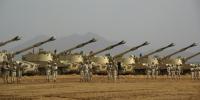
Saudi Arabia said it was ready to send ground troops to Syria to fight ISIS. Saudi sources added that thousands of Saudi Special Forces could be deployed, probably in coordination with Turkey. Saudi gains in the war against pro-Iranian rebels in Yemen have freed Saudi resources to be directed to Syria, and the fact that Russia and the Assad regime focus their military effort on fighting the moderate rebels means that these rebels need more outside help to withstand the pressure both from ISIS and the Syrian regime and its allies.
-
-
Two Israeli teenagers receive long sentences for murdering Palestinian boy
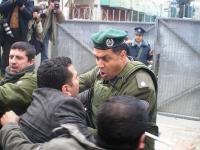
Two Israeli teenagers were sentenced to long jail terms for kidnapped the Palestinian teenager Mohammed Abu Khdeir in 2014, and burning him to death. The older of the two, aged 17, was sentenced to life in prison, while the other teenager, a 16-year old, was sentenced to twenty-one years. The 16-year-old Abu Khdeir was grabbed off the street and beaten. He was then taken to a forest outside Jerusalem, and was set afire while he was still alive.
-
-
U.K. regulators to investigate political broadcast critical of Turkey, Muslims
OFCOM, the U.K. communication regulator, said it was considering more than thirty complaints about a political broadcast by UKIP, the Euro-skeptic, anti-immigration populist party. OFCOM said that UKIP’s Wednesday night broadcast on ITV and the BBC may have crossed the line in giving racial offense, promoting Islamophobia, and engendering bias toward Turkey.
-
-
Bin Laden’s 9/11 plot “inspired” by EgyptAir flight 990 crash: Al-Qaeda
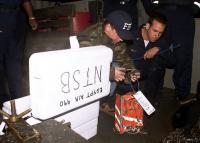
Osama bin Laden planned the 9/11 terrorist attacks after being “inspired” by a chance discussion about a plane crash into the Atlantic Ocean. An al-Qaeda publication claims that bin-Lade, discussing EgyptAir Flight 990 — which crashed into the Atlantic Ocean during its journey from Los Angeles to Cairo, killing all 217 people on board – asked: “Why didn’t he crash it into a building?”
-
-
U.K.’s anti-radicalization program “sowing mistrust and fear” in Muslim communities: Watchdog
David Anderson QC, the independent reviewer of the U.K.. terrorism laws, said that the government’s flagship anti-radicalization program, Prevent, should be reviewed because it is sowing mistrust and fear in the Muslim community. Anderson said that the program, particularly its requirement that schools spot and report signs of radicalization in students, has become a “significant source of grievance” among British Muslims, encouraging “mistrust to spread and to fester.”
-
-
Florida declares state of emergency in four counties with Zika virus

Florida Governor Rick Scott has declared a state of emergency in four counties where nine residents have been diagnosed with the Zika virus. Miami-Dade in south Florida, Hillsborough in Tampa Bay, Lee County in southwest Florida, and Santa Rosa County in Florida Panhandle have all been affected under the executive order. Health officials believe, however, that the residents became sick outside the United States.
-
-
Britain: Russia’s goal in Syria is to carve out Alawite mini-state for Assad
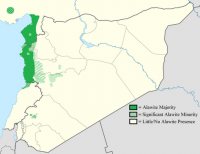
Philip Hammond, Britain’s foreign minister, has said that Russia’s real goal in Syria was to carve out an Alawite mini-state in Syria for its ally President Bashar al-Assad. Hammond said this was the reason why Russia’s massive bombing raids have targeted the Syrian opposition forces instead of fighting ISIS. Hammond’s comments offered a rare insight into the Western assessment of the Kremlin’s objectives for Syria.
-
More headlines
The long view
Factories First: Winning the Drone War Before It Starts
Wars are won by factories before they are won on the battlefield,Martin C. Feldmann writes, noting that the United States lacks the manufacturing depth for the coming drone age. Rectifying this situation “will take far more than procurement tweaks,” Feldmann writes. “It demands a national-level, wartime-scale industrial mobilization.”
No Nation Is an Island: The Dangers of Modern U.S. Isolationism
The resurgence of isolationist sentiment in American politics is understandable but misguided. While the desire to refocus on domestic renewal is justified, retreating from the world will not bring the security, prosperity, or sovereignty that its proponents promise. On the contrary, it invites instability, diminishes U.S. influence, and erodes the democratic order the U.S. helped forge.
Fragmented by Design: USAID’s Dismantling and the Future of American Foreign Aid
The Trump administration launched an aggressive restructuring of U.S. foreign aid, effectively dismantling the United States Agency for International Development (USAID). The humanitarian and geopolitical fallout of the demise of USAID includes shuttered clinics, destroyed food aid, and China’s growing influence in the global south. This new era of American soft power will determine how, and whether, the U.S. continues to lead in global development.
Water Wars: A Historic Agreement Between Mexico and US Is Ramping Up Border Tension
As climate change drives rising temperatures and changes in rainfall, Mexico and the US are in the middle of a conflict over water, putting an additional strain on their relationship. Partly due to constant droughts, Mexico has struggled to maintain its water deliveries for much of the last 25 years, deliveries to which it is obligated by a 1944 water-sharing agreement between the two countries.
How Disastrous Was the Trump-Putin Meeting?
In Alaska, Trump got played by Putin. Therefore, Steven Pifer writes, the European leaders and Zelensky have to “diplomatically offer suggestions to walk Trump back from a position that he does not appear to understand would be bad for Ukraine, bad for Europe, and bad for American interests. And they have to do so without setting off an explosion that could disrupt U.S.-Ukrainian and U.S.-European relations—all to the delight of Putin and the Kremlin.”
How Male Grievance Fuels Radicalization and Extremist Violence
Social extremism is evolving in reach and form. While traditional racial supremacy ideologies remain, contemporary movements are now often fueled by something more personal and emotionally resonant: male grievance.
